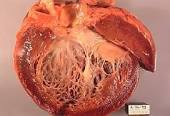Leave a Comment:
12 comments
Hi Mr Emerson,
My mom was recently diagnosed with MM and has decided to stop chemo after only one week. I’m looking for anything that could help her despite her decision to refuse the treatment. She has mentioned quercitin. Could you suggest a kickstart plan in this type of situation. I appreciate any advice. Thanks so much
ReplyHi Mr Emerson,
My mom was recently diagnosed with MM and has decided to stop chemo after only one week. I’m looking for anything that could help her despite her decision to refuse the treatment. She has mentioned quercitin. Could you suggest a kickstart plan in this type of situation. I appreciate any advice.
ReplyHello David Emerson; I am a newly diagnosed MM patient…(Diagnosed at Mayo Clinic back in March 2023) I am 71 years old in good physical condition but I can tell the side effects from all the treatments is taking a toll on me. I have undergone 8 months of chemo (Velcade every week), 12 mg of dexamethasone once a month. Also take 5 mg of Revlimid since July of 2023. Now I am scheduled to go through extensive testing next week at Mayo Clinic and yes they are talking about me going through stem cell transplantation.. At diagnosis back in March there were no active Lytic lesions in my skeleton. It will be interesting to see if any new lesions show up now next week when they do another skeletal survey. They want to extract my stem cells now in November and can bank them for 10 years until which time it may be necessary to do a stem cell transplant. I know two of my friends with MM that have gone through stem cell transplant…one of which did not stay in remission. My other MM friend had two transplants and has been in remission for 8 years. So I am not convinced that a stem cell transplant is the answer but I know my oncologist is trying to get me to go ahead with the transplant. If you have any sage advice for me, I am all ears as to what questions to ask Mayo next week when I’m going through all the testing, labs etc. I’ve been very impressed with all the information your webpage offers us MM survivors. Thankfully submitted! Jim Boersma Olivia, Minnesota
ReplyHi David , my white blood cells are 2.3. Absolute Neutrophils 1.0. Am getting infections due to lowered immunity. What can I take to bolster up my immune system ?
ReplyHow much quercetin should a person with Multiple Myeloma take per day?
ReplyHi Emily-
Unfortunately there is no dose given in the study linked in that blog post. Most studies I read taking about anti-mm supplementation talk about “time and dose dependent manner” meaning the more, the longer, the better.
When I supplement (curcumin, quercetin, omega-3, etc.) I take the dose recommended on the label.
David Emerson
ReplyCan I take Quercetin when I am getting Velcade? I know no green tea or vit c but Quercetin? Thank you
ReplyHi Sally-
According to the research lined below, flavonoids (quercetin) reduces the efficacy of velcade aka bortezomib for MM treatment.
https://www.ncbi.nlm.nih.gov/pmc/articles/PMC5292595/
Consider supplementing and stopping 48 hours before your injection and then beginning again 48 hours after.
Good luck,
David Emerson
Replyone more thought . is there a possibility of stopping velcaid and testing just life extension blend of resveratrol and quercetin to see if this could reverse her kappa rise. and also add the sulforaphane and garlic /allicin supplement as hdac inhibitors? thanks for considering this less toxic approach ,as velcaid has caused some nerve damage and hand tremor for Billie, so not happy about resuming it just yet. her freechain ratio is less than it was in jan. 2020 when her pet/ct scan was still free of new lesions ,so we have more time i feel to test some all natural approaches. thanks again for listening.
ReplyHi Robin-
I will reply to this post as well when I email you directly. Hang in there.
David Emerson
Replyi have just read quercetin can block velcaids effectiveness ,much like vit. c and green tea . is this true from info. that you have researched. i have read quercetin is a hdac inhibitor,which helps kill m.myeloma cells. there is a m.myeloma drug called panbinostat that acts as a hdac inhibitor ,and works synergistically with velcaid to make velcaid work again after your m.myeloma clone cells have become resistent or partially resistent to velcaid, which is my wifes situation now it appears. we’ll either try just the quercetin ,or maybe the velcaid and the panabinostat to beat back rising kappas as Billie has taken a 4 month break from velcaid to allow her immune system to form antibodies for covid after taking the 2 moderna vaccines. her pet/ct scan last month was free of new lesions and her b.m. biopsy showed 8% clone cells. but still the freechain ratio has skyrocketed from 25 to 150 now after the 4 month break. not sure what we should do now? either just add quercetin 500 mg garlic /allicin supplements and sulforophane and no velcaid ,or do velcaid and other natural sources of hdac inhibitors like garlic and sulforophane supplements ,and perhaps the panbinostat to sensitize the clonal cells to velcaid again? your thoughts? if you have some would be much appreciated. you know i respect your opinion very much! sincerely Robin
ReplyHi Robin-
I will reply to this question directly via your email address so that I can include the supplement, integrative and bone health MM CC course guides.
David Emerson
Reply



